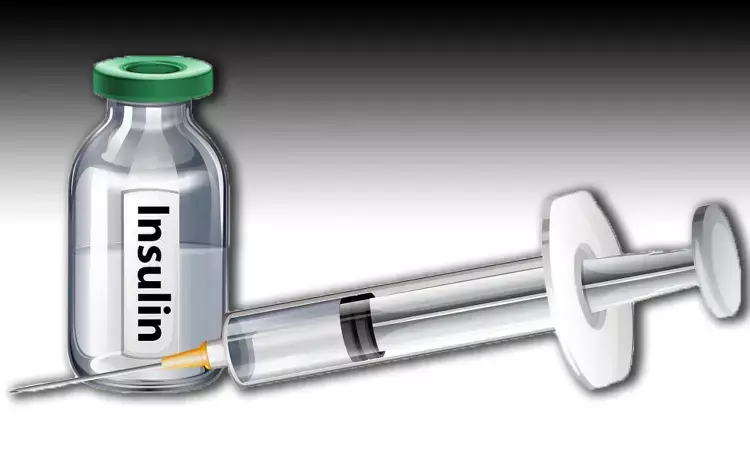- Home
- Medical news & Guidelines
- Anesthesiology
- Cardiology and CTVS
- Critical Care
- Dentistry
- Dermatology
- Diabetes and Endocrinology
- ENT
- Gastroenterology
- Medicine
- Nephrology
- Neurology
- Obstretics-Gynaecology
- Oncology
- Ophthalmology
- Orthopaedics
- Pediatrics-Neonatology
- Psychiatry
- Pulmonology
- Radiology
- Surgery
- Urology
- Laboratory Medicine
- Diet
- Nursing
- Paramedical
- Physiotherapy
- Health news
- Fact Check
- Bone Health Fact Check
- Brain Health Fact Check
- Cancer Related Fact Check
- Child Care Fact Check
- Dental and oral health fact check
- Diabetes and metabolic health fact check
- Diet and Nutrition Fact Check
- Eye and ENT Care Fact Check
- Fitness fact check
- Gut health fact check
- Heart health fact check
- Kidney health fact check
- Medical education fact check
- Men's health fact check
- Respiratory fact check
- Skin and hair care fact check
- Vaccine and Immunization fact check
- Women's health fact check
- AYUSH
- State News
- Andaman and Nicobar Islands
- Andhra Pradesh
- Arunachal Pradesh
- Assam
- Bihar
- Chandigarh
- Chattisgarh
- Dadra and Nagar Haveli
- Daman and Diu
- Delhi
- Goa
- Gujarat
- Haryana
- Himachal Pradesh
- Jammu & Kashmir
- Jharkhand
- Karnataka
- Kerala
- Ladakh
- Lakshadweep
- Madhya Pradesh
- Maharashtra
- Manipur
- Meghalaya
- Mizoram
- Nagaland
- Odisha
- Puducherry
- Punjab
- Rajasthan
- Sikkim
- Tamil Nadu
- Telangana
- Tripura
- Uttar Pradesh
- Uttrakhand
- West Bengal
- Medical Education
- Industry
Long acting insulin analogue tied to low risk of sudden fall of blood sugar: JAMA

USA: The use of long-acting insulin analogs versus NPH insulin lowers the risk of severe hypoglycemia in older patients with type 2 diabetes (T2D), finds a recent study in the journal JAMA Internal Medicine.
Previous studies found no difference in the risk of severe hypoglycemia or sudden fall of blood sugar between the use of long-acting insulin analogs and neutral protamine Hagedorn (NPH) insulin in T2D patients. However, these studies were not focused on patients 65 years or older who are at increased hypoglycemia risk, or did not included patients with concomitant prandial insulin use.
Marie C. Bradley, S Food and Drug Administration, Silver Spring, Maryland, and colleagues aimed to examine the risk of emergency department (ED) visits or hospitalizations for hypoglycemia among older community-residing patients with type 2 diabetes who initiated long-acting insulin or NPH insulin in real-world settings.
For the purpose, the researchers performed a retrospective, new-user cohort study and assessed Medicare beneficiaries 65 years or older who initiated insulin glargine (n = 407 018), insulin detemir (n = 141 588), or NPH insulin (n = 26 402) from January 1, 2007, to July 31, 2019.
The primary outcome was time to first ED visit or hospitalization for hypoglycemia, defined using a modified validated algorithm.
Key findings of the study include:
- The study included 7347 ED visits or hospitalizations for hypoglycemia (5194 for glargine, 1693 for detemir, and 460 for NPH insulin, with a median follow-up across the 3 cohorts of 0.37 years (interquartile range, 0.20-0.76 years).
- Initiation of glargine and detemir use was associated with a reduced risk of hypoglycemia compared with NPH insulin use (HR for glargine vs NPH insulin, 0.71; HR, detemir vs NPH insulin, 0.72).
- The HRs were similar for the recurrent event analysis.
- The protective association of long-acting insulin analogs varied by age and was not seen with concomitant prandial insulin use.
"In this cohort study, initiation of long-acting analogs was associated with a lower risk of ED visits or hospitalizations for hypoglycemia compared with NPH insulin in older patients with type 2 diabetes in Medicare. However, this association was not seen with concomitant prandial insulin use," wrote the authors.
"Put another way, the findings suggest a need for caution for the use of insulin isophane suspension among Medicare beneficiaries, particularly those who may be at greatest risk for hypoglycemia," they write.
"For the individual older patient, the decision to initiate insulin use has to be made with an open discussion of the risks and benefits, taking into account the overall goals of care, the capacity of the patient to perform the treatment plan safely, and practical considerations, such as out-of-pocket costs and type of delivery (pen vs vial)," Dr. Elbert Huang with University of Chicago, Illinois, and Dr. Kasia Lipska with Yale University, New Haven, Connecticut.
The study titled, "Severe Hypoglycemia Risk With Long-Acting Insulin Analogs vs Neutral Protamine Hagedorn Insulin," is published in the journal JAMA Internal Medicine.
DOI: https://jamanetwork.com/journals/jamainternalmedicine/article-abstract/2777049
Dr Kamal Kant Kohli-MBBS, DTCD- a chest specialist with more than 30 years of practice and a flair for writing clinical articles, Dr Kamal Kant Kohli joined Medical Dialogues as a Chief Editor of Medical News. Besides writing articles, as an editor, he proofreads and verifies all the medical content published on Medical Dialogues including those coming from journals, studies,medical conferences,guidelines etc. Email: drkohli@medicaldialogues.in. Contact no. 011-43720751


